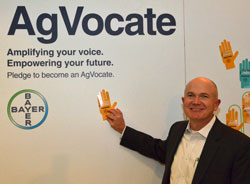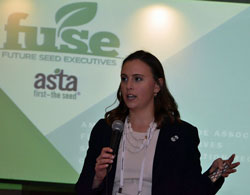 The National Cotton Council is expressing its gratitude for the effort to get cottonseed to be designated as an “other oilseed.” The group thanked House Agriculture Committee Chairman Mike Conaway (R-TX) and Ranking Member Collin Peterson (D-MN) for their help in getting 100 House Members signed onto a letter urging Agriculture Secretary Vilsack to use the authority granted in the 2014 farm law to make the designation.
The National Cotton Council is expressing its gratitude for the effort to get cottonseed to be designated as an “other oilseed.” The group thanked House Agriculture Committee Chairman Mike Conaway (R-TX) and Ranking Member Collin Peterson (D-MN) for their help in getting 100 House Members signed onto a letter urging Agriculture Secretary Vilsack to use the authority granted in the 2014 farm law to make the designation.
“We are extremely grateful to Representatives Conaway and Peterson for leading the charge on this effort,” said NCC Chairman Sledge Taylor, a Mississippi cotton producer and ginner. “This designation is much needed as our industry is facing very difficult economic conditions to say the least. We want to thank all those Members that signed the letter for standing up for U.S. cotton producers who continue to be unfairly disadvantaged by foreign governments highly subsidizing their industries.”
Taylor said the designation for cottonseed to be covered either under the law’s Price Loss Coverage or Agriculture Risk Coverage programs for the purpose of farm safety net participation would provide much-needed stability in the U.S. cotton industry.
The Representatives’ letter, a bipartisan request from both rural and urban Members inside and outside the Cotton Belt sent to Secretary today, noted that, “Lower prices for cotton lint and cottonseed contributed to a decline in average market revenue of more than $150 per harvested acre in 2014 compared to 2013. And current expectations for prices and yields indicate that market revenue will decline by another $24 per acre in 2015, resulting in cotton revenues 25% lower than the average market returns for 2010 through 2013.”
Earlier, state, regional and national letters were sent to Secretary Vilsack from agricultural lenders that included more than 375 signatures of individual banks, the Farm Credit Council, the American Bankers Association and the Independent Community Bankers Association, and all noted that “it is imperative that actions be taken that can have a stabilizing effect on the U.S. cotton industry.”
NCC and other U.S. cotton industry organizations hope Vilsack will use this authority to help stabilize the industry.













